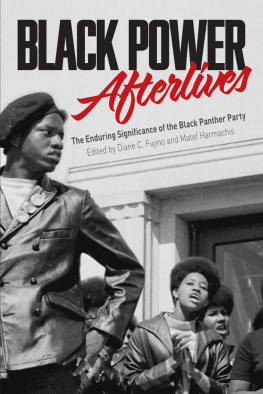Thank you for buying this ebook, published by NYU Press.
Sign up for our e-newsletters to receive information about forthcoming books, special discounts, and more!
Sign Up!
About NYU Press
A publisher of original scholarship since its founding in 1916, New York University Press Produces more than 100 new books each year, with a backlist of 3,000 titles in print. Working across the humanities and social sciences, NYU Press has award-winning lists in sociology, law, cultural and American studies, religion, American history, anthropology, politics, criminology, media and communication, literary studies, and psychology.
Constructing Black Selves
NATION OF NEWCOMERS
Immigrant History as American History
Matthew Frye Jacobson and Werner Sollors
GENERAL EDITORS
Beyond the Shadow of Camptown:
Korean Military Brides in America
Ji-Yeon Yuh
Feeling Italian:
The Art of Ethnicity in America
Thomas J. Ferraro
Constructing Black Selves:
Caribbean American Narratives and the Second Generation
Lisa D. McGill
LISA D. McGILL
Constructing Black Selves
Caribbean American
Narratives and the
Second Generation
NEW YORK UNIVERSITY PRESS
New York and London
www.nyupress.org
2005 by New York University
All rights reserved
Library of Congress Cataloging-in-Publication Data
McGill, Lisa D.
Constructing Black selves : Caribbean American narratives and the second generation
/Lisa D. McGill.
p. cm. (Nation of newcomers)
Includes bibliographical references and index.
ISBN13: 9780814756911 (acid-free paper)
ISBN10: 0814756913 (acid-free paper)
1. Caribbean AmericansIntellectual life. 2. Children of immigrantsUnited
StatesIntellectual life. 3. Caribbean AmericansRace identity. 4. African
AmericansRelations with Caribbean Americans. 5. EthnicityUnited States.
6. African diaspora. 7. Caribbean AmericansSocial conditions. 8. Children of
immigrantsUnited StatesSocial conditions. 9. Performing artsSocial
aspectsUnited States. 10. American literatureCaribbean American authors
History and criticism. I. Title. II. Series.
E184.C27M33 2005
700.89960729dc22 2005011452
New York University Press books are printed on acid-free paper,
and their binding materials are chosen for strength and durability.
Manufactured in the United States of America
10 9 8 7 6 5 4 3 2 1
For Chad, Camryn, Cayla, and Chlo
the next generation
CONTENTS
ACKNOWLEDGMENTS
In researching and writing this book, I benefited from the personal and professional support, advice, and scholarship of several colleagues and friends. I owe a particular thanks to Hazel Carby, who first shepherded this project as a dissertation in the American Studies Program at Yale University. Hazels work, enthusiasm, and mentoring were very important to my graduate school career. I am also grateful for the intellectual support of Michael Denning, Robert Stepto, and Matthew Jacobson. They were always willing to offer insights and direction as my project evolved over the years. Matthew Jacobson was especially helpful in pushing me to explore immigrant cultural history as I revised the manuscript.
I am indebted to Patricia Pessar, who agreed to do an independent study course on Dominican immigrants with me in my first year of graduate school. Her intellectual prodding from the beginning helped me conceptualize a project that considered the connections between migration and cultural studies. She has continued to help me think critically about race, gender, and migration.
Further, I want to express my gratitude to teenagers and cultural workers from La Alianza Dominicana, Dominican 2000, and L.E.A.P for sharing their time and thoughts with me for my last chapter. I have always thought of myself more as a practitioner of community building than as a pure academic. I have made an attempt to create a bridge between my academic specialization and my commitment to be a change agent in urban communities. I am sincerely grateful to my former students from Latino Youth Development in New Haven, Connecticut, who always made my scholarship on second-generation Caribbean youth in the United States seem worthwhile.
There really is no way to even begin to thank my husband, Jay Readey, and the McGill family. Jay, Rose, Michael, Lorraine, Linda, Camryn, Cayla, and Chlo encouraged me, provided emotional sustenance, and initiated ordinary conversation to give me much-needed breaks from this study. My son, Chad, entered this world to challenge my time-management skills and completion goals but provided good company and irreplaceable laughter as I wrote to finish up and he flipped through books patiently.
Introduction
In 1993, the sociologists Alejandro Portes and Min Zhou introduced their study of the new second generation with the rap of Herbie, a Haitian American who rhymed:
My name is Herb
and Im not poor;
Im the Herbie that youre looking for,
like Pepsi,
a new generation
of Haitian determination
Im the Herbie that youre looking for.
Portes and Zhou explained that Herbies rap, Straight Out of Haiti, illuminated the dilemma of assimilation for post-1965 immigrant youth. As Portes and Zhou saw it, Herbie was caught in the cultural conundrum of other second generationers in the 1990s. He, like most in his peer group, had at least three assimilation possibilities:
One of them replicate[d] the time-honored portrayal of growing acculturation and parallel integration into the white middle-class; a second
Herbies fate, Portes and Zhou warned, depended on what choices he made as a black immigrant especially. Was his hip-hop braggadocio a sign that he had fallen victim to adopting the outlooks and cultural ways of the native-born, meaning the urban African American population? Had he found a way to retain [his] ethnic identity by cloaking it in black American cultural forms? Or could he, despite the lure of urban African American culture, still find a way to maintain the immigrant communitys values and attain the American dream?
Current debates over the assimilation of second-generation Caribbean immigrants have revitalized contemporary discussions of migration to the United States. Children born to parents who emigrated from Caribbean islands have been the topic of recent inquiries about the political and social formations of West Indian and Latino communities in American cities. Appearing in the 1990s, Portes and Zhous articlealong with the works of Ruben Rumbaut (1991) and Mary C. Waters (1996; 1999)sought to challenge the straight-line models of generational assimilation into white America, models that had dominated immigration scholarship since the mid-twentieth century. Contemporary social scientists realized that, as products of the migration patterns that developed after changes in U.S. immigration policy in 1965, which encouraged an increase in migration from non-European countries, recent immigrants and their children raised complex questions about America as the proverbial melting pot, while they experienced varied integration processes in the United States.
Despite the attention given to Caribbean immigrants and their negotiations of African American cultural forms in postwar America, there has yet to be an in-depth analysis of the ways in which cultural production becomes a site of cultural engagement between Caribbean second generationers However, Herbies rap, as I argue about other cultural works in this study, intimates another reality: a dialogue taking place between Caribbean American youth and the African American community. Straight Out of Haiti uses the language of rap to negotiate and perform racial and ethnic identities in the United States.









